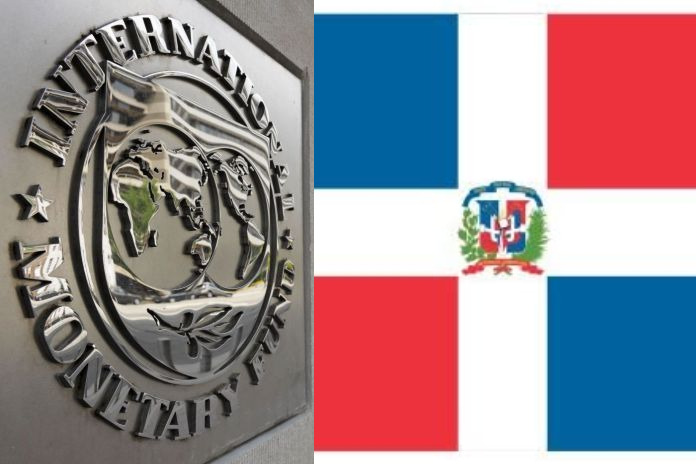WASHINGTON, USA – An International Monetary Fund (IMF) team led by Esteban Vesperoni conducted virtual meetings with the authorities, development partners and representatives of the private sector in the Dominican Republic from April 21 to May 5, 2021, to conduct discussions for the 2021 Article IV Consultation.
At the conclusion of the meetings, Vesperoni issued the following statement:
“The Dominican Republic has been one of the most dynamic economies in the region over the last decade amid robust growth, macroeconomic stability, a sound external position, and a notable improvement in social outcomes. This performance was supported by continued improvement in macroeconomic frameworks and the investment climate, and financial stability.
“This strength allowed a decisive policy response to the pandemic, including by supporting solid access to global markets to finance the emergency. The response included fiscal measures that increased health expenditures and transfers to low-income households and the unemployed, targeted tax relief, and tax deferrals. The central bank lowered its policy rate in a timely manner and expanded liquidity to support credit while the Monetary Board introduced flexibility in the prudential framework. These measures contributed to support macroeconomic stability amid the external shock caused by the pandemic.
“This policy response, the ongoing vaccination campaign, the global recovery and strong government support to the tourism sector are placing the economy on a dynamic recovery in 2021, instrumental for raising income levels over the medium term. The economy is expected to grow by 5½ percent this year, and inflation to converge gradually to levels within the target range as the impact of supply shocks recedes in the second half of the year. The current account would remain more than fully financed by foreign direct investment and the financial system remains resilient and continues to support the economy. Globally, uncertainty remains high, but risks are broadly balanced. While a longer-than-expected vaccine deployment globally can make the recovery uneven and affect financial conditions, faster pandemic containment can trigger positive spillovers.
“In the short term, policy priorities should balance continued support to the recovery with strong policy signals to ensure sustainability. As in most countries, the pandemic has brought to the forefront the need to secure medium-term debt sustainability. In this context, the pace of the gradual withdrawal of support should be guided by available policy space, control of non-priority spending and contingency planning. The authorities’ fiscal plans—including a commitment to prioritize health and social spending through the vaccination campaign and the extension of social programs to early 2021—strive to strike the right balance of policy objectives. A careful calibration of monetary policy support and an exit strategy from regulatory flexibility measures based on close oversight and transparency would also contribute to the recovery.
“As the impact of the pandemic recedes, the economy would benefit from reforms to strengthen medium-term policies. The authorities’ commitment to fiscal and electricity sector reforms appropriately points to the need for securing debt sustainability. The mission also welcomes efforts to improve public financial management, transparency in the execution and reporting of public spending, and reforms to enhance effectiveness in public administration—which can build social support for other reforms.
“Well-sequenced reforms would strengthen momentum to foster sustained and inclusive growth, and accelerate the convergence to advanced countries’ income levels:
- Strengthening policy frameworks . The monetary policy framework would benefit from following plans to recapitalize the central bank, which would strengthen its institutional and financial independence. In addition, fiscal responsibility legislation would help anchor medium-term fiscal policies, signaling a commitment to debt sustainability that can help building support for other fiscal reforms.
- Revenue mobilization . Tax collection in the Dominican Republic lags compared to peers; there is scope to mobilize more revenue by broadening the tax base and streamlining exemptions while calibrating the distributional impact. This would aid medium-term fiscal consolidation while maintaining policy space for critical spending.
- A sustainable electricity sector . Ongoing developments in energy generation are instrumental to secure reliable provision of electricity at lower costs; reforms agreed in the electricity sector pact aiming at enhancing governance in the sector, reforming tariff and subsidy policies, and reducing electricity losses have the potential to secure financial sustainability in the sector.
- A strengthened financial regulatory framework. To reinforce structural resilience, the financial system would benefit from moving closer to international standards of supervision and regulation, developing further the macroprudential and crisis management toolkit, and strengthening the regulatory and institutional basis for cooperatives financial oversight.
- Reforms to support growth . The National Competitiveness Strategy has been drafted—including an ambitious digital agenda. Infrastructure and human capital investment, a social pact towards more flexible and formal labor markets, enhanced educational quality and labor market participation of women, lower logistical costs, and climate change adaptation and mitigation policies can further unlock growth potential. Continued improvements in the business climate will be key, including reforms on governance—such as the plan to enhance effectiveness in public administration—which can reduce red tape and foster investment.
- Building on past improvements in social outcomes . The pandemic has partially reversed hard-earned progress in reducing poverty and inequality. Plans to increase effectiveness and targeting in social support programs while strengthening their focus on facilitating labor market insertion, as well as to reinforce the application of the social security law, have the potential to improve social outcomes.
“The mission would like to thank the authorities for their full cooperation, which has made possible very open and productive discussions”.





